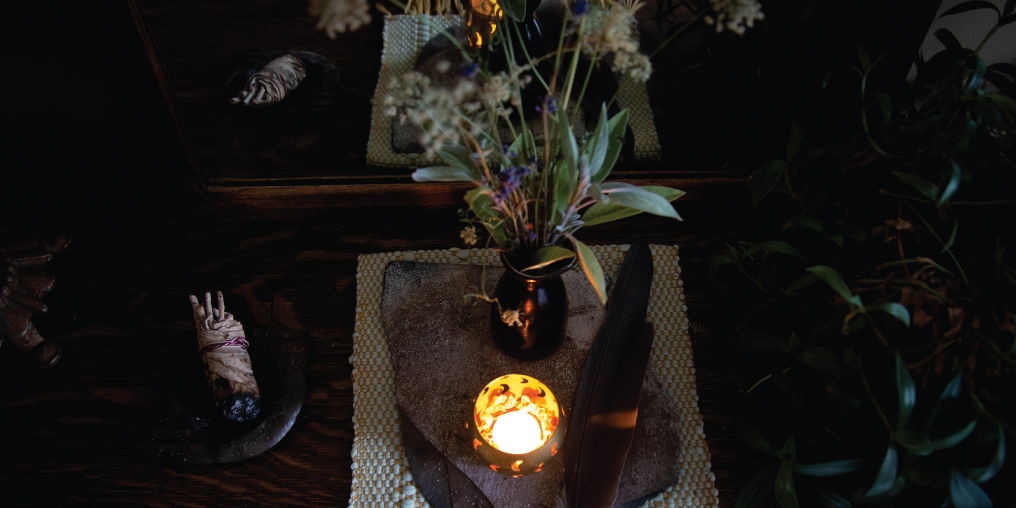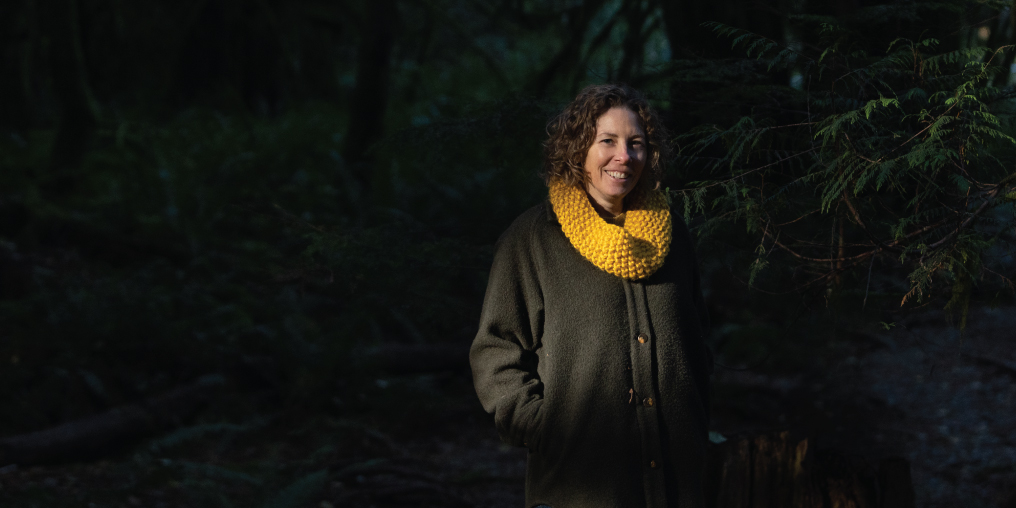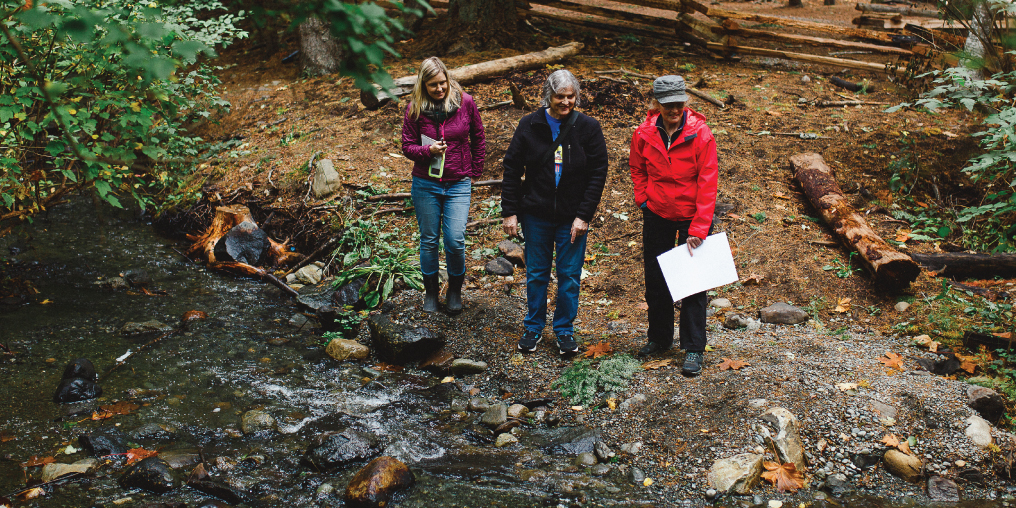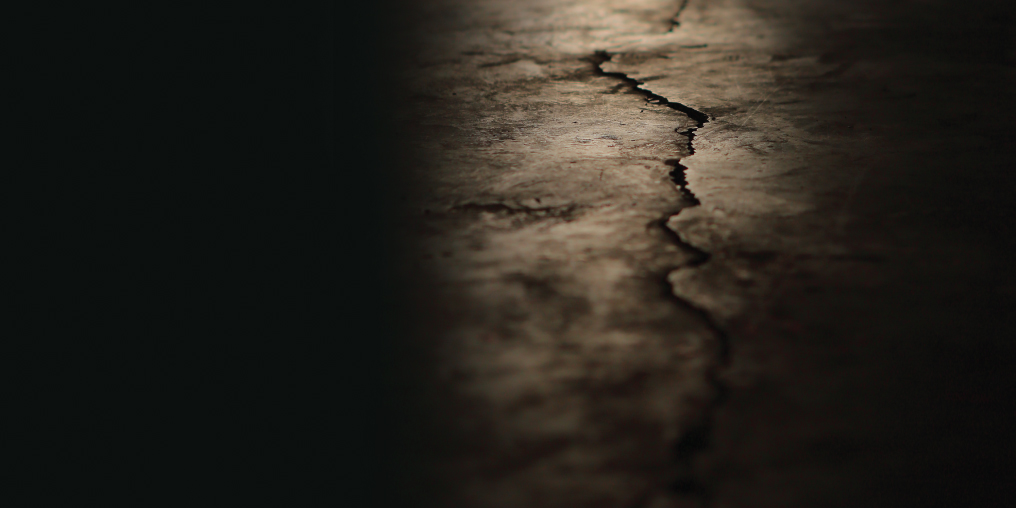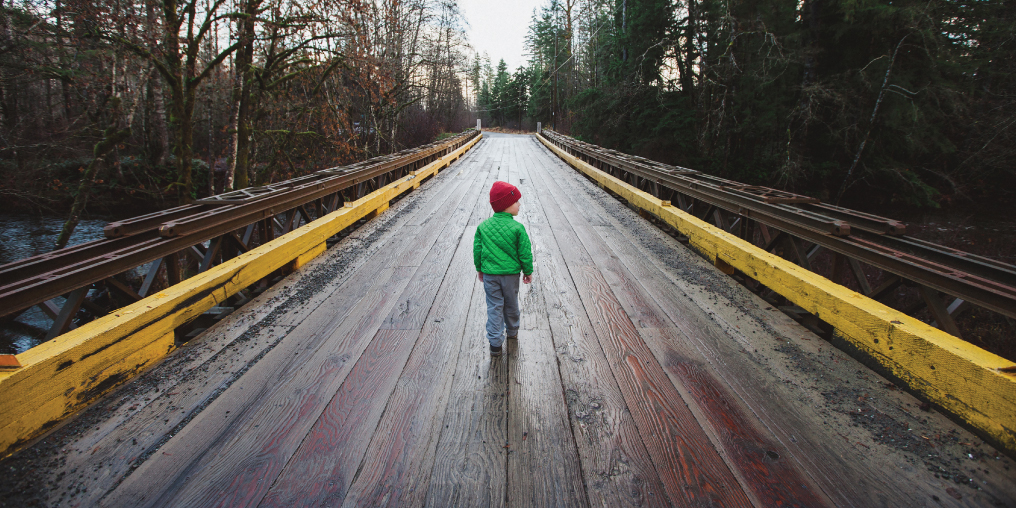The beginning of winter, with its transition from warmth to cold and from growth to decay, is a reminder of the ever-changing nature of life and the fact that, in time, everything dies. Death is part of nature— it’s all around us every day, especially at this time of year.
The change in season has me thinking about the final rest more than I normally do (which is quite often). You see, I’m a Death Companion. If you’ve never heard of this line of work, don’t be alarmed. It’s just a fancy title to say I offer holistic, non-medical support to those facing the end of life and their loved ones.
You may not like to think about this subject; talking about death and mortality is difficult for many of us. But I believe we all have an innate wisdom that can allow us to be companions to each other on our individual death journeys which—let’s face it—we’re all on.
To change the way we think about, and deal with, death, we need to foster compassionate community relationships and co-create deathcare networks. We’re all capable of being a death companion. By simply listening, we create and hold safe space for sharing our death stories and cultivate healthy, healing death experiences.
Around the world, more and more people are called to deathwork in a professional capacity. They may call themselves a death companion, end of life doula, death doula, or other title, but they all provide services related to various aspects of life and death. Community members in the Comox Valley practice this sacred work in many ways.
“I believe that death is a sacred, beautiful part of our journey,” says Janet O’Dell, an end-of-life practitioner and celebrant whose supportive work includes infant and pregnancy loss. Her mission is to bring “care, compassion, laughter, and love to the death process.”
Janet, Sherri Ellis-Bell, and I make up a deathcare team that helps people undertake end-of-life planning, no matter what stage of the journey they’re at. We collaborate on community events and use our individual skill sets to extend our collective reach.
So far, my death companioning path has called me to focus on pet loss, home funerals, and earth-friendly disposition options. Sherri serves as a wedding officiant, funeral celebrant, and end-of-life doula; her vision is to “gently widen the crack of curiosity, providing safe space to begin the conversation and encouraging honest and heartfelt feelings to unravel.”
Ritual and ceremony play an important role in all forms of death companioning. Be Ceremonial, an app I use to help people create their own ceremonies and rituals, explains it beautifully: “Ceremonies can help you acknowledge both the big and small milestones in life, helping you honour those visible and invisible moments of change. Rituals can connect us to ourselves, to each other, and to the world around us.”
Deathcare practitioner Krista Manuel compassionately uses her experience in grief support and education to help individuals and families create meaningful ceremonies. “We have become a death-denying society,” she declares, “[but] community deathcare means empowered possibility at end of life.”
Andrea Townsend’s deathcare practice often takes the form of education through public speaking and writing. This former ER and ICU nurse says, “My time in the ICU showed me how unprepared most people are at the end of life, which results in lengthy, challenging deaths. Having knowledge and choice ensures your end-of-life transition is as easeful as possible.”
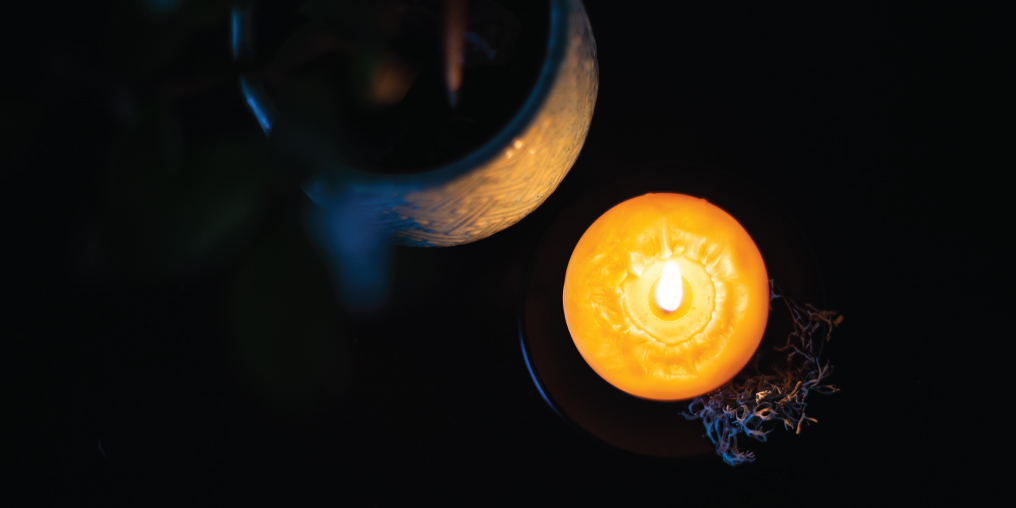
Andrea also notes, “deathcare is a calling that will call every human at some point in their lives. This work is not just for doulas, it’s an inevitability of every human.” Wherever you are on your life journey, the ability to find and create meaning around the end of life is in all of us. It starts with acknowledging the finite nature of everything. Think of the Latin phrase memento mori, which translates to “Remember that you must die.”
By discussing death and connecting with each other, we are doing deathwork and co-creating what I like to call a holistic community deathcare network. Anyone can—and everyone should—do deathwork.
The infinite talents and different lived experiences of those in the community weave together to form an interconnected web, ultimately tending to our mental, physical, emotional, social, and spiritual needs as whole human beings. “Death, like birth, involves family, friends, neighbours, and health care workers. There is much joy in birth and there can also be joy in death,” says Carol Elliott, a local funeral celebrant. This is, in essence, community deathcare.
Getting comfortable telling our stories about death can help us live more meaningful, fulfilled, and empowered lives. It can prevent regrets and help us focus on what is most important to us. It can also help us learn about what we, and the ones we care about, want to happen at the end of life, and how we want to be celebrated and remembered. Start with simple questions like: Do you have a will? What do you want done with your body when you die? What songs do you want played at your funeral? Knowing such things ahead of time can be a huge relief for you and your loved ones in the end.
“Death is not anomalous … we’ve been doing it for a long, long time,” notes Esther Purves-Smith, a Comox Valley Hospice Society volunteer who also supports people through grief, loss, and end-of-life questions in her general counselling practice. She adds, “Inviting conversation about death, dying, and loss reinforces the idea that death is not outside of, but a part of, life.”
This winter, I encourage you to take time to rest and think about death and mortality. Prepare to learn, strengthen connections, invite rich conversations, and step into the co-creation of a continuously growing, holistic deathcare network.
Read up on death at orderofthegooddeath.com or join the Facebook group Community Deathcare Canada.

